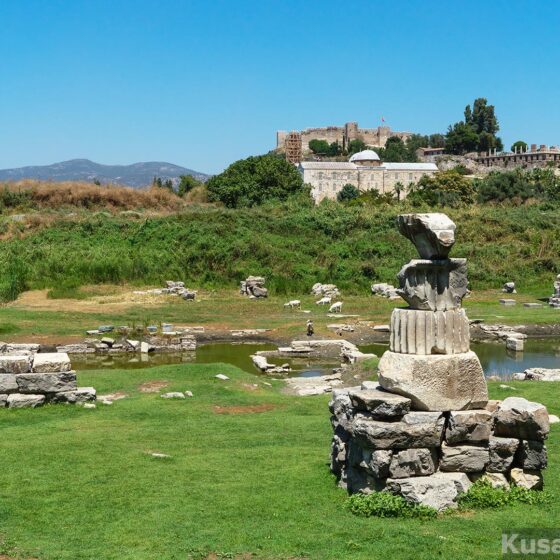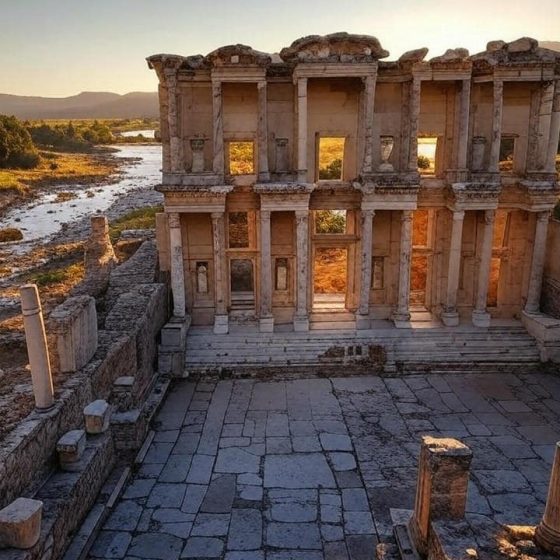Table of Contents Show
In the heart of what was once the ancient world lies Ephesus, a city of ruins that whispers stories of glory, faith, and eventual silence. This guide aims to illuminate the enigmas of Ephesus, addressing the queries that echo through the minds of many who yearn to connect with its storied past. We’re here to answer your most-asked questions in 2024.
Why Was Ephesus Built?
Ephesus was strategically established in the 10th century BC by Ionian Greeks for its harbour on the Aegean Sea, serving as a vital trade and naval centre. Its location facilitated commerce and interaction with the cultures of the Mediterranean.
Why Was Ephesus Abandoned?
The city was abandoned due to the silting of its harbour, which led to the loss of its significance as a trade centre. Additionally, repeated raids and natural disasters over the centuries made the location untenable.
When Was Ephesus Discovered?
The ruins of Ephesus began to be systematically excavated in the late 19th century. Although the site had been known to locals and travellers for centuries. Archaeological efforts have continued to reveal its extensive history.
What Is Ephesus Famous For?
Ephesus is famous for its well-preserved ruins, including the Library of Celsus, and the Temple of Artemis. It is a testament to ancient Greek and Roman architectural ingenuity.
Why Is Ephesus No Longer on the Coast?
Over time, the Kaystros River’s silt deposits gradually filled Ephesus’s harbour, moving the coastline westward. This geological change contributed to the city’s decline as a maritime power.
Why Was Ephesus Such an Important City?
Ephesus was a major centre for antiquity trade, religion, and culture. It was the capital of the Roman province of Asia. Hence making it a political and economic hub of the ancient world.
See also: Discover Ephesus: Book Your Ephesus Tour Today
Who Is Ephesus in Revelation?
Ephesus is referred to as one of the Seven Churches of Asia in the Book of Revelation. It was a significant early Christian community, visited by the Apostle Paul, who wrote the Ephesians’ letter.
Where Is Ephesus in the Bible?
Ephesus is mentioned multiple times in the New Testament, notably in Acts and the Epistle to the Ephesians. It played a crucial role in the spread of Christianity throughout the Roman Empire.
See also: 7 Churches of Revelation: Tailored Tours in Turkey
How Did Ephesus Get Buried?
Ephesus was buried over the centuries by accumulated silt and debris from natural disasters, such as earthquakes, and human activities. The gradual buildup led to the city being covered until archaeological excavations revealed its hidden wonders.
Ephesus: How Many Days to Visit?
To fully appreciate the breadth of Ephesus’s archaeological sites, a visit of at least one to two days is recommended. This allows for a thorough exploration of its major landmarks and an opportunity to soak in the atmosphere of this ancient city.
See also: Exploring Kusadasi: 7-Day Kusadasi Itinerary
Ephesus remains a fascinating destination for those interested in the intersection of history, culture, and religion. Its ruins offer a window into the past, inviting visitors to step back in time and experience the glory of this ancient metropolis.
Last updated on February 15, 2024



